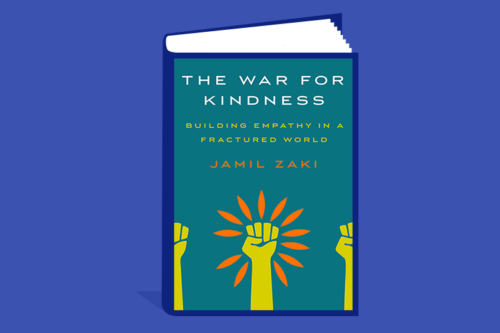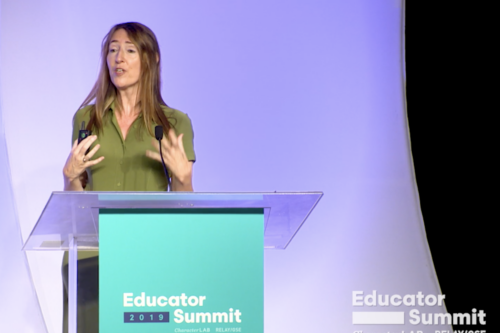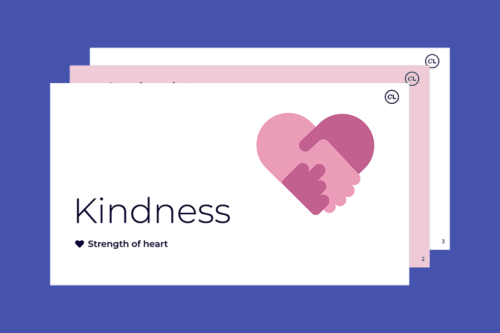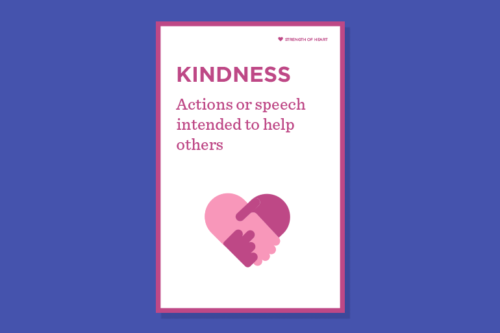Kindness
Actions or speech intended to help others
 Strength of heart
Strength of heart“Be kind whenever possible. It is always possible.”
—Dalai Lama
Why does kindness matter?
When you act kindly toward others, the benefits go both ways. Small, thoughtful acts—like helping, sharing, listening, or teaching—can change both how you are perceived and how you see yourself. When children are encouraged to be kind, their peers want to spend more time around them. Not only does kindness strengthen social relationships, but it also can show that your choices have an impact and that you have valuable skills (like the ability to make friends). In short, being kind to others is also being kind to yourself.
Pulse Check
Think about yourself. How many of these things are true?
- I pay attention to what other people want or need to try to figure out how I can help.
- I go out of my way to do favors for others, speak up to support them, share what I have, or simply listen when they need a friend.
- I consciously make small sacrifices to be kind to others, like taking a few minutes to do an extra chore or listening to a story even if I’m not in the mood for it.
- I try to think about how much my actions mean to others instead of how much of a burden they are for me.
How do I encourage kindness in others?
Model it. When being helpful to others, talk about why you’re doing it. Try to include the cue for the behavior and what outcome you anticipate: “I noticed that you all seem a little down today because it is Monday, so I decided to give the class an extra five minutes of free time to talk to the people around you. I hope that this can help you feel a little more awake and excited to work.” Point out things you notice about others, and brainstorm together about things that you can do. “I notice that Grandma is unhappy when her house is messy. What do you think I could do to help?”
Celebrate it. When you notice kind behavior, try to make clear why it’s so generous. “I saw that you gave your seat up on the bus for the older gentleman. That was very thoughtful of you to choose to stand so that he could sit. I am sure that you helped give him a rest.” Work with the young people in your life to become “kindness detectives” who are constantly alert to others’ needs or wants.
Enable it. Making “If ___, then ___” plans can support habit formation. For example: “If someone is walking behind me through a door, then I will hold the door for them.” Planning what to do in future situations can make the decision happen more naturally when they arise.
About the Authors
Tips
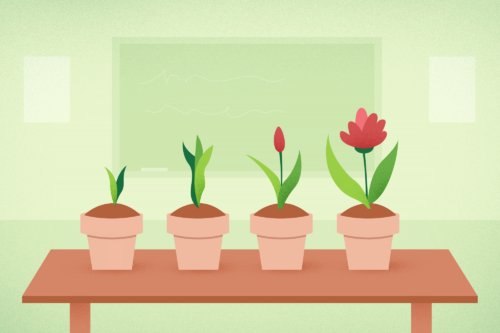
Style and Substance

Talking to Strangers
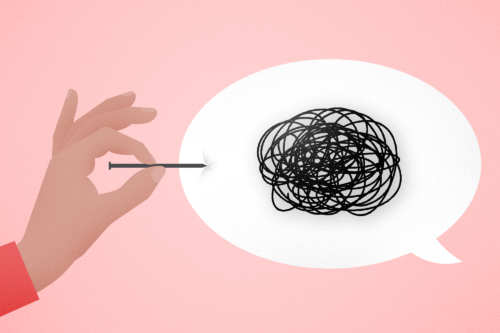
Take the Sting Out
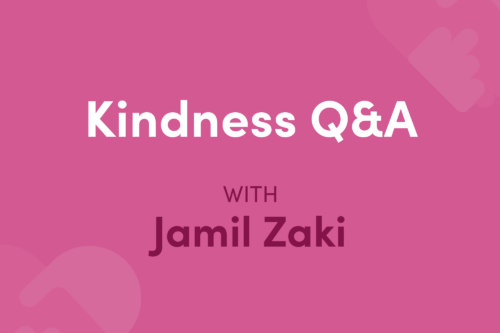
Better Together
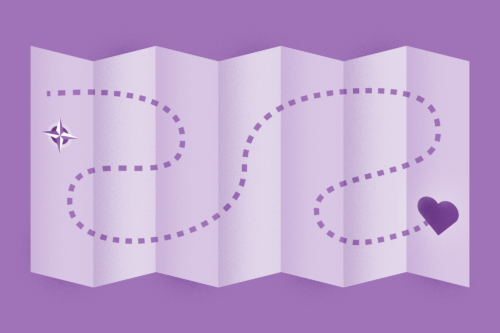
Know Thyself
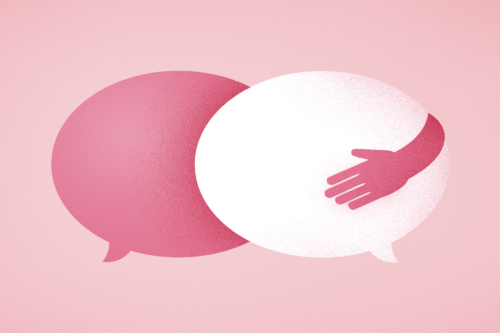
Through the Eyes of a Child
Learn More
Character is more than just kindness.
There are many other strengths of heart, mind, and will.
LEARN MORE ABOUT CHARACTER


